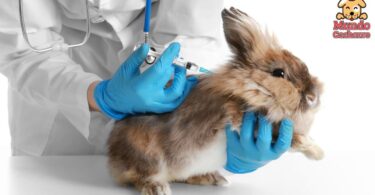Land tortoises can be delightful creatures to keep as pets. Although their care is not usually very complicated, they do require specific care to ensure their health and well-being in captivity. Proper care of a tortoise involves several essential elements that owners must understand and implement carefully.
Indice
In this article we tell you about the five essential aspects to take into account for the care of this reptile species.
Five guidelines for the care of your land tortoise
Let’s take a look at the five fundamental guidelines to ensure an optimal environment and proper care for these magnificent reptiles.
- Suitable habitat
Providing a suitable habitat is essential for the well-being of the tortoise. A spacious enclosure that allows the tortoise to move freely is required. The recommended minimum enclosure size is at least four times the length of the tortoise’s shell in terms of horizontal space and an area for digging. Terrariums, outdoor enclosures or even fenced gardens can be used, making sure that they are adequately protected.
- Temperature and humidity controlled
Land tortoises need a warm and dry environment. Maintaining an adequate temperature between 25-30 degrees Celsius during the day and no less than 20 degrees Celsius at night is crucial. Providing shaded areas and an area with access to ultraviolet light helps regulate body temperature and absorb vitamin D3 for calcium metabolism.
- Balanced diet
The diet of land tortoises varies according to the species, but generally includes green leafy vegetables, such as dandelion, hibiscus, watercress, among others. A diet based solely on fruit should be avoided, as it can lead to nutritional imbalances. Vitamin and calcium supplements are also necessary to maintain bone health and growth.
- Water and hygiene
Although land tortoises do not swim frequently, they need access to water for drinking and soaking. A shallow dish with fresh water should be available at all times. In addition, keeping the feeding area and general habitat clean is essential to prevent disease and maintain hygiene.
- Shelter and hibernation
Providing adequate shelter is important for the tortoise to feel safe and secure. This can be a box or cave within the enclosure. In addition, some species of tortoises enter a state of hibernation during the colder months. In case the species requires it, it is crucial to simulate appropriate conditions for this process.
The importance of the veterinarian
Regular visits to a reptile veterinarian are essential to ensure the health of the tortoise. An annual checkup can help detect health problems or nutritional deficiencies before they become major problems.
Caring for a tortoise involves responsibility and commitment. In addition, learning about the specific needs of the turtle species in question is crucial to provide optimal care and ensure a long and healthy life for these wonderful creatures.
Image courtesy of https://pixabay.com, all rights reserved.







